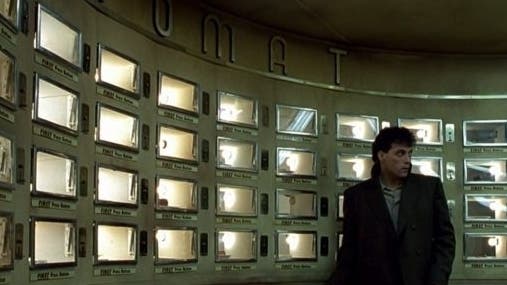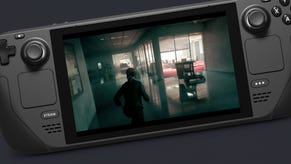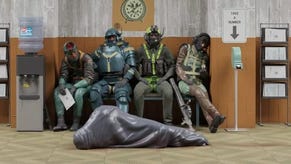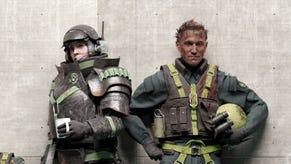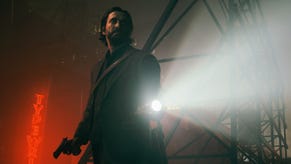What matters is that somebody cares about the tomato sauce
The little things that show a game is made with love.
I've misplaced my DVD of Dark City, so I can't get the wording right for this, but I don't think the wording is that important anyway. The important thing is that on the DVD there's a commentary - remember those? - not with the director Alex Proyas, but with the critic and writer Roger Ebert, who loves the movie and has an awful lot of natty things to say about it.
The thing I remember most - okay half remember - is about details. Dark City is a stylish and frightening science fiction film concerned with the world and our perceptions of it. It's moody stuff. And it's filled with fantastic details that bring the movie and its skewed metropolis to life. It's the kind of film where you know someone has really fussed over the advertising hoardings in the background, over the props, over the materials used in the actors' coats and whatnot. Everything is just so. Ebert's talking about some of these details and he says, I think, that they make the movie sing because they remind you that the director really, really cares. He says something along the lines of Proyas being the guy in the kitchen up to his elbows in tomato sauce.
Maybe that's not exactly the quote, but over the decades since I first heard Ebert talking about this stuff I have always had a thing for movies and games and books and art where somebody really cares about the tomato sauce - where somebody is up to their elbows in it. There's an old Tori Amos track where they've clearly banged pins and thumbtacks and what-have-you into the hammers of a piano to make the strings sound a bit different. That's caring about the tomato sauce. There are slipshod spelling mistakes very unslipshodly inserted into the emails you read on terminals in Deus Ex games. That's tomato sauce thinking too. In Dark City itself, when the hero is watching a bunch of family photos projected via a slide machine at a crucial moment, one of the slides is in upside down. Tomato sauce, need I tell you, all over the place.
So yes, I always have my eye out for the next tomato sauce game. And I keep an open mind. There are traces of tomato sauce, weirdly, in Anthem, which seems on the surface like a game that has been kept as far away from the stove as possible - if it ever went near a kitchen at all it would clearly be the test kitchen at Garfunkel's HQ - but which also has that wonderful hub where someone has made sure that the old stone steps are more warn away in the middle, where there has been centuries of heavy foot traffic, than they are at the edges. It's hard not to love that. But then this week I saw some of the footage my colleague Tom Phillips brought back from his trip to see Control. Jeepers!
Control is a game about a spooky building where all sorts of mind-warping, geometry-shifting, generally terrifying and beautiful things are happening. Weirdly, I think there's something of Dark City in the mix as corridors extend and make impossible turns, as concrete walls buck and splinter and fractalise, offering horrific tessellated glimpses of infinity.
There's definitely some Dark City thinking at work, anyway. This is clearly a game of details. And as I watched the details become apparent, it was hard not to shake the feeling that this is one of those games where the developers must clearly love what they're doing. They're plussing everything - adding little bits of business, the magical 0.1 per cent that makes everything 100 per cent better.
I am going to restrict myself to one example. Control feels a bit like a spiritual sequel to Psi-Ops: The Mindgate Conspiracy. This is already a good thing, obv, but what it means is that you can pick stuff in the game world up with your mind and then lob it around. At one point in the video I've whacked on this page somewhere - around the 1.55 mark - the player picks up an archive trolley of some kind and blasts it into the distance. The trolley does not go quietly. It rages, unleashing an explosion of white paper that swirls and dances and fills the air.

Wonderful stuff. Incredible. It has meaning within the game, I guess, because there's a bit of risk and reward to weaponising something that also obscures your view. But more than that, it's just a reminder that people care enough to take a simple thing and make it surprising and thrilling, to take an action and make it a memory.
Proyas would be proud, I think. Ebert would be proud even. And we all get to sit down at the table and enjoy.
